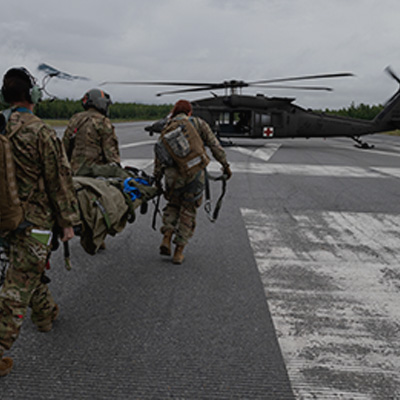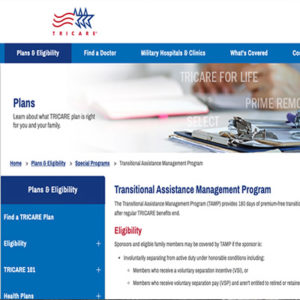Uncategorized
The Insurance Dilemma
The Insurance Dilemma
A New Reality: Free Services that aren’t Free Anymore
During your time in the military insurance is something that isn’t a big priority on your mind. Sure, you understand it’s value because you appreciate the services you receive. However, when it comes time to pay for these services, the cost can seem overwhelming. Service members are given the support with insurance so they are able to fully focus on duty and not worry about their health or the health of family members. Once you make the choice to exit, it will be time to consider what will be best for you and if applicable, your family.
 Keep Health Coverage
Keep Health Coverage
One important note is that although it may be very tempting not to seek health insurance when you decide to punch out, it is unwise to not have some. Even when you feel like it is the last thing you are able to think about, with all the other thousands of things you have to plan and worry about. Health insurance can prevent many debts related to medical bills. Medical bills are a one of the leading causes of bankruptcy, and health insurance can often help you avoid major out of pocket expenses.
TAMP Transition
The Transitional Assistance Management Program (TAMP) is a short-term health care program that will give you and your family an additional 180 days of health care coverage after you separate from the military. The benefits are the same as active duty health care, and if you qualify, you and your family will receive DoD issued ID cards for access to health care on base.
TAMP is designed for military members and their families who are required to make a quick, and sometimes unexpected, exit from military service. Eligibility for TAMP depends on 2 factors: the reason you are separating from the military, and you must have an honorable discharge.

If you are eligible for TAMP, it should show up in your DEERS (Defense Enrollment Eligibility System) profile, and it is recommended you apply for these benefits before you separate from the military. This will give you 6 additional months of active duty health care coverage, which will hopefully be enough time to find a civilian health care plan, or transition to the Continued Health Care Benefit Program (CHCBP). In the event you qualify, you will receive TAMP after your Tricare benefits expire.
CHCBP
 In the civilian world, companies offer their employees COBRA Health Insurance Coverage, which allows their employees to take their group health insurance with them when they leave their company. The only catch is the former employee is required to pay for the entire cost of the plan (i.e. it is no longer subsidized by their former employer). COBRA benefits are usually good for 18 months.The military doesn’t have an exact COBRA program, but they offer something very similar to the Continued Health Care Benefit Program (CHCBP). Participants who are leaving the military health care system (Tricare) are able to buy into the CHCBP. This program offers 18-36 months of benefits and is open to anyone who is leaving Tricare, including military members and their families. This program is open to a wide variety of people, but there is a cost involved.
In the civilian world, companies offer their employees COBRA Health Insurance Coverage, which allows their employees to take their group health insurance with them when they leave their company. The only catch is the former employee is required to pay for the entire cost of the plan (i.e. it is no longer subsidized by their former employer). COBRA benefits are usually good for 18 months.The military doesn’t have an exact COBRA program, but they offer something very similar to the Continued Health Care Benefit Program (CHCBP). Participants who are leaving the military health care system (Tricare) are able to buy into the CHCBP. This program offers 18-36 months of benefits and is open to anyone who is leaving Tricare, including military members and their families. This program is open to a wide variety of people, but there is a cost involved.Now that you know some transitional options, it’s time to look into what you will need once you secure a job in the civil sector. Health insurance in the States has two categories. The first is group health insurance, and the second is individual health care coverage.
Group Vs. Individual Insurance
Group health insurance is a plan held by a large number of people, these are usually the plans your new employer will offer you as part of your benefits. Your previous Tricare coverage would be an example of group health insurance.
An individual health care plan is a health care plan that is for an individual or an individual family and is not part of a larger group benefits plan. Many of these plans are part of the Affordable Care Act and can be found on Healthcare.gov, or a private website. These plans vary from state and region. Once you know where you will be living and working, it will be a good idea to browse either website and look for a plan that will cover your needs.
Bottom Line: You have to do what’s best for you
Be sure to shop around, but always know that it’s much better to have insurance, than have to pay out of pocket. It won’t take a lot to run up a high medical bill, so planning ahead is your best defense against unwanted debt related to medical expenses. Health insurance will be your ally in navigating your new civilian life, which will likely have many bumps and bruises as you adapt

